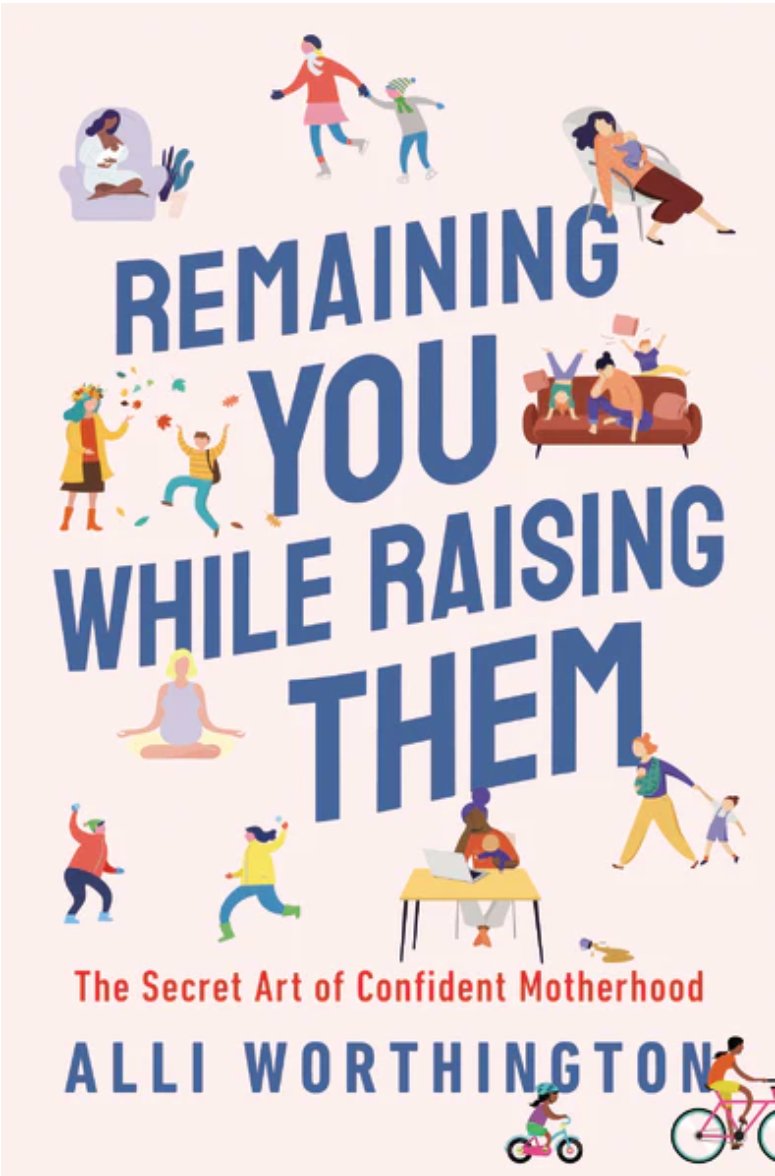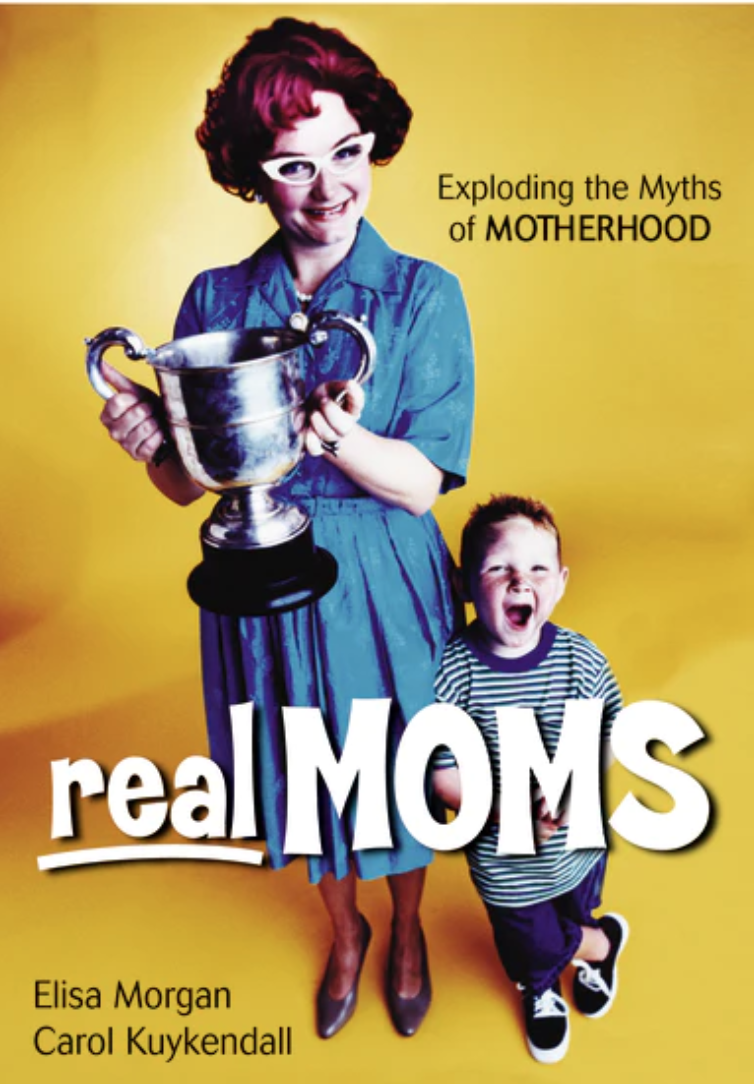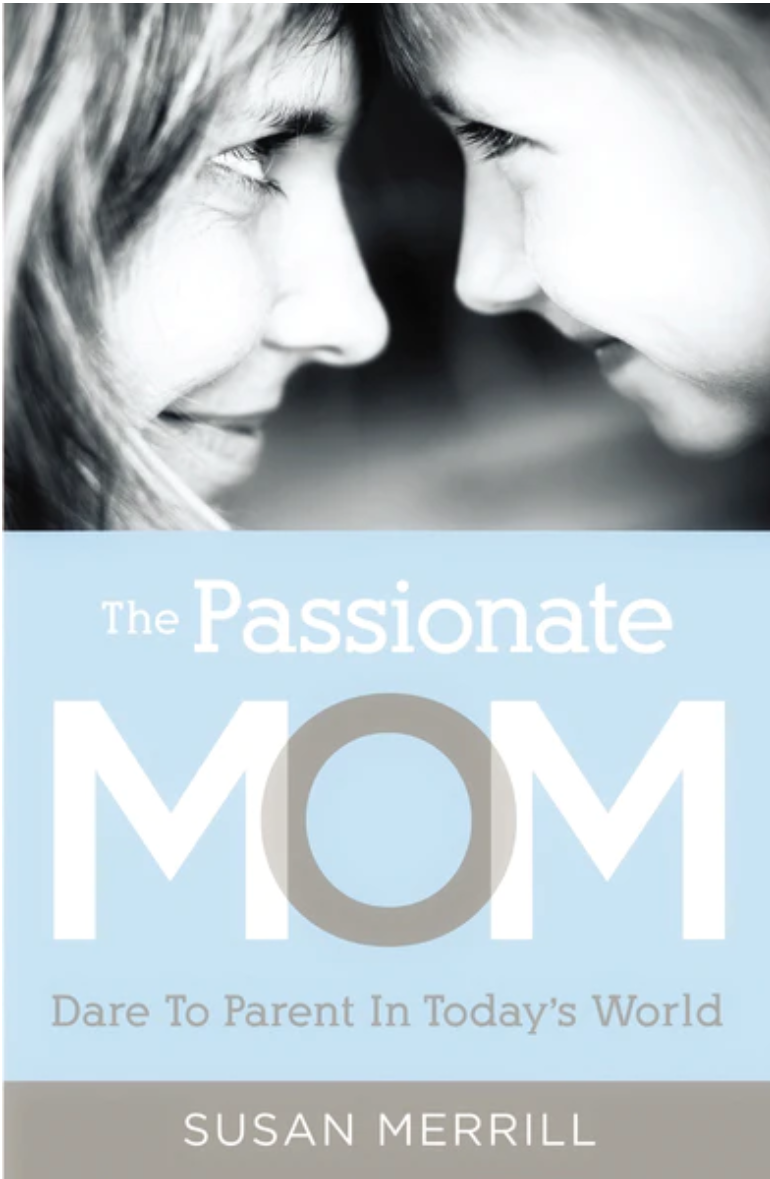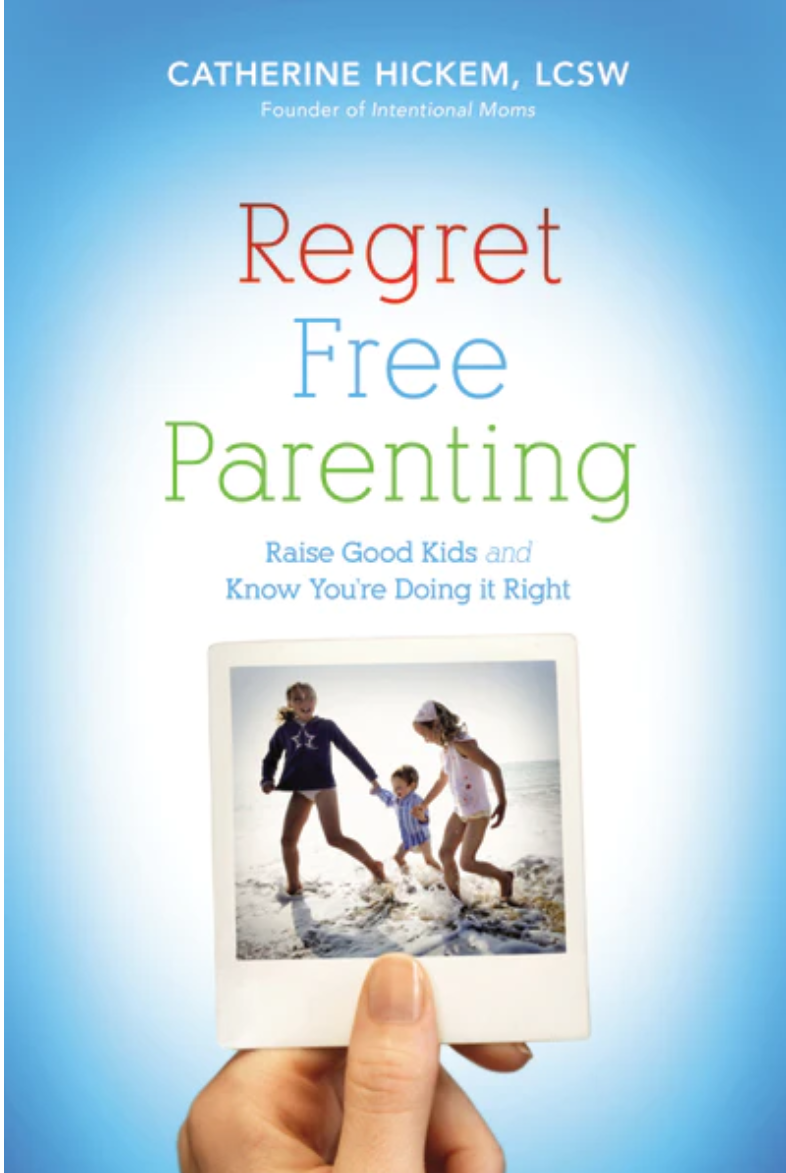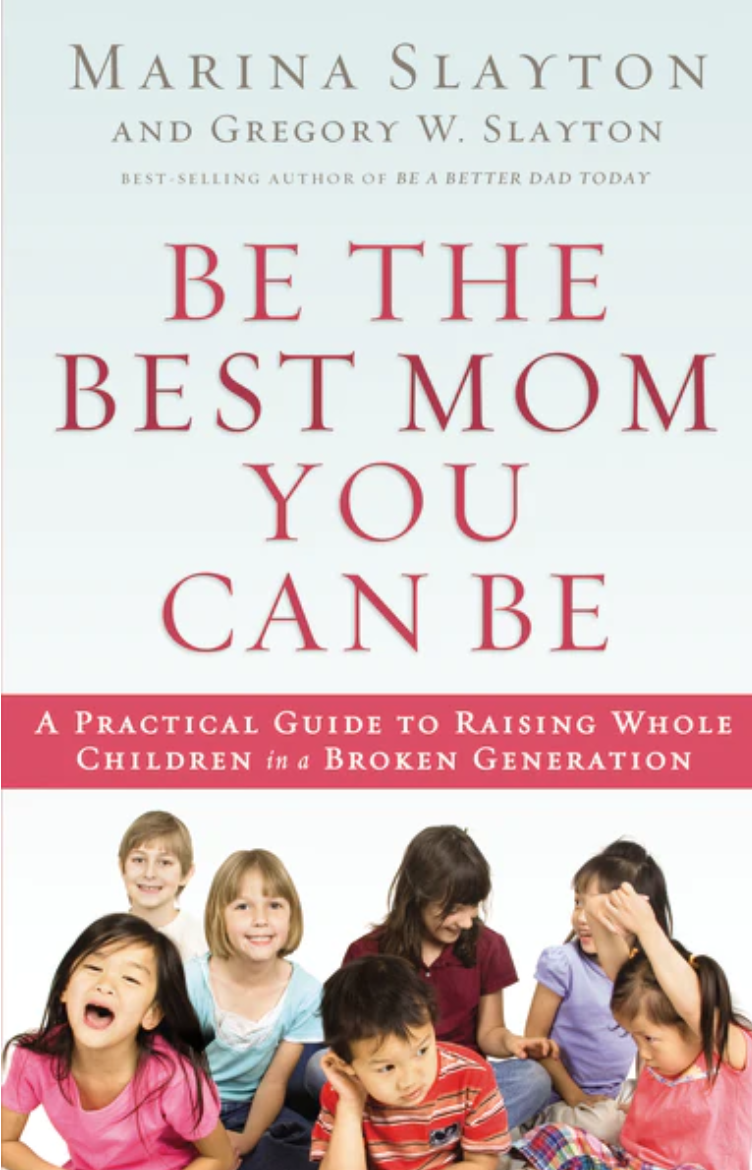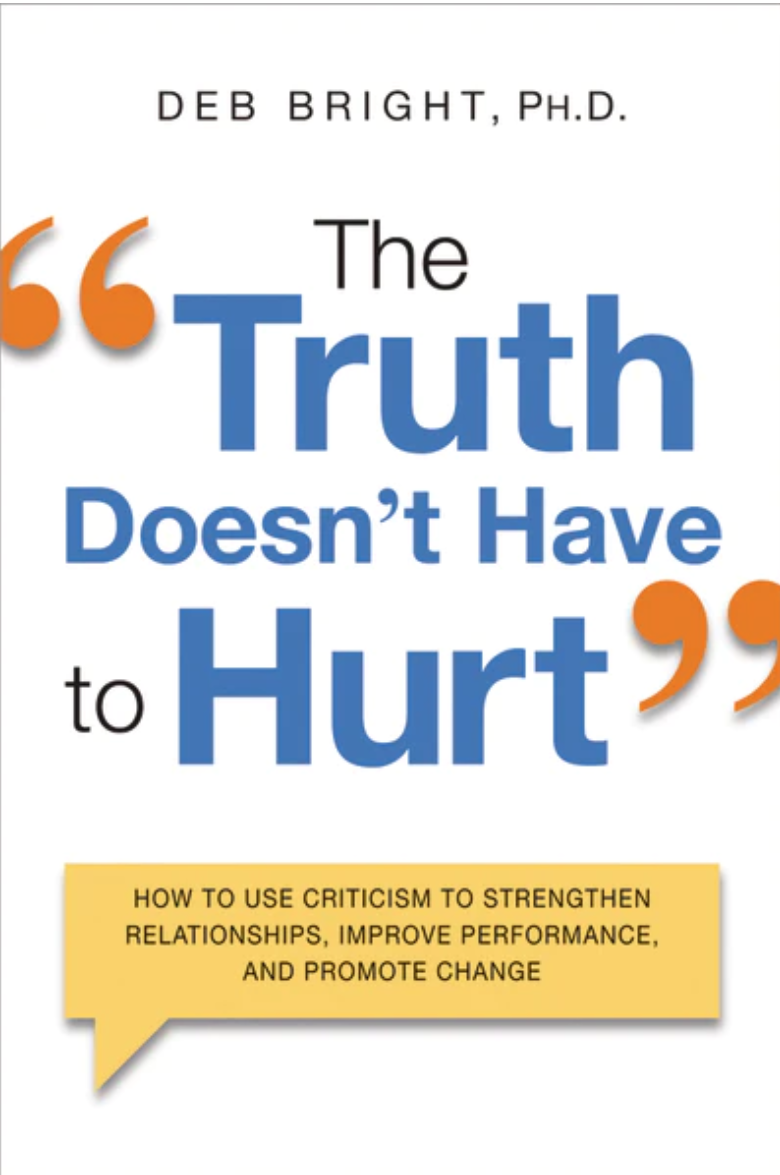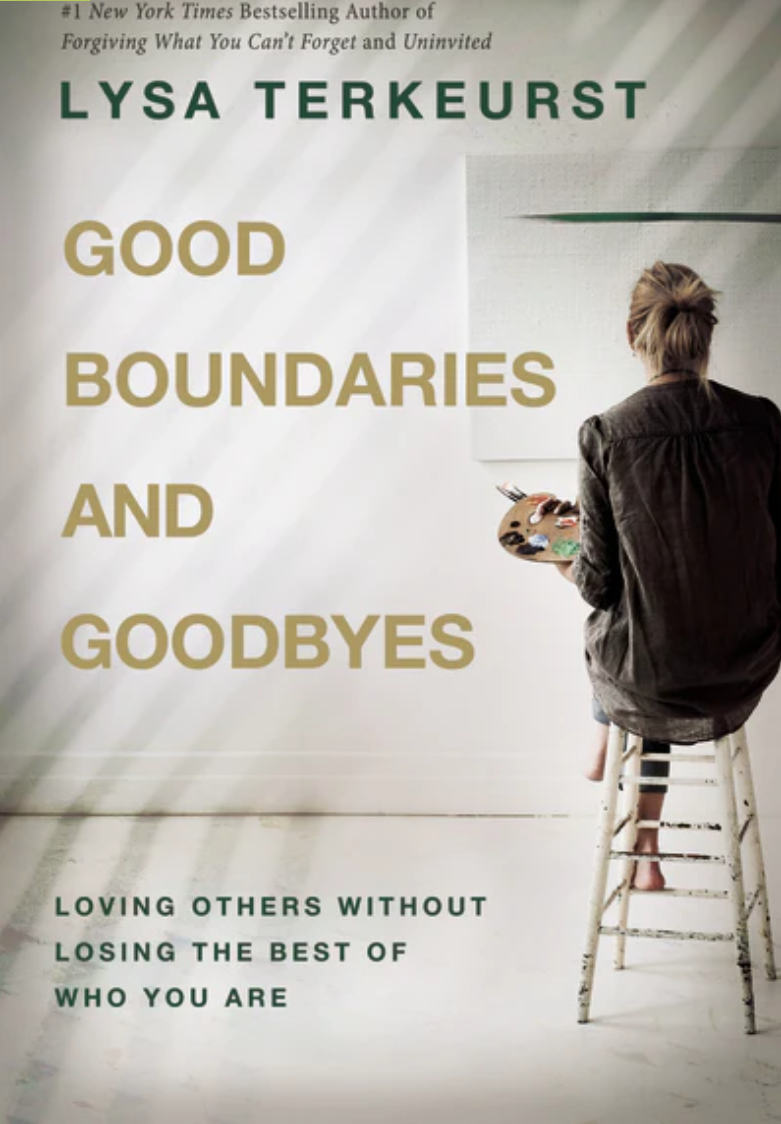If you are a mother whose parents are in your life, then this is for you. I don't think there is a single mother who has not experienced some sort of criticism from their parents. This criticism can be about anything! How you parent, how you cook, what you wear, which school your children go to, what diapers you use, even how often your baby cries (as if you had any control over that). Really it's like our parents think they have all the answers.
Recently, I received some criticism over why it was taking me so long to reply to my texts from my parents and why I hadn't completed various tasks yet that only take a few minutes to do. My simple answer, it wasn't a priority. I received even more criticism from that answer. I was then berated on how it should be a priority and how I just sit around all day anyways, and I have had plenty of time to do it. This wasn't the first time I had heard these comments, and I'm sure it won't be the last.
As an
Table of contents
I'm Not My Parents
The truth is, I am not my parents. I do not have the same experiences, challenges, conveniences, resources, personality, financials, living situations, or family that they did when they were raising me. They honestly have almost zero experience of my life. The most they can relate to is raising a boy and girl in a Christian household in south east America. I can't even go any more detailed than that. Even they have changed in their beliefs and practices since I left their home. It is truly, an entirely different experience.
So why do they think they know my experiences and what I am able or not able to do?
The differences in viewpoints, values, and parenting methodologies that often exist between two generations, particularly between parents and their adult children who are now parents themselves. It encompasses the contrast in understanding and expectations about child-rearing based on the distinct societal norms, economic conditions, technological advancements, and cultural shifts that each generation experienced during their prime parenting years. This gap can lead to misunderstandings and criticisms from older generations who may not fully appreciate the new challenges and approaches of modern parenting.
The Generational Parenting Gap
Understanding Our Parent's Perspective
Why the older generation may have certain expectations or criticisms
As you can guess, our parents' grew up during a time when societal norms were different. Those plus their own personal experiences shaped their own upbringing and parenting methods. In every generation, there are disagreements between the new parents and older parents regarding the ideas of what success looks like and how life should be lived. This is spurred on even more by technology that changes everything about our daily lives. One thing that is common amongst our parent's generation is their highest values. Respect. Tradition. Discipline.
For example, a survey of Americans over the age of 50 showed that 68% believe current generations are raised to be more sensitive, and 75% say today's parents are not strict enough. These results show that the criticisms that our parents give us might come from them thinking we aren't tough enough or resilient enough. They adapted or were raised with a much more authoritarian parenting style than us.
Our parents grew up in a time of civil rights movements, the Vietnam War, and the sexual revolution. Society was influencing them to raise their children with values instead of materialistic goals. However, economic challenges in the 70s made a shift towards a more individualistic and material-driven mindset. This carried into their parenting styles. They then strived to offer their children the life of comfort they aspired to. This was symbolized by the suburban home and white picket fence ideal. As parents, they became known as the first “helicopter parents,” closely involved in their children's lives and activities, often to the point of overprotectiveness.
Changes in society, technology, and parenting norms since they were raising children
While growing up, the values my parents pushed for me matched their generation. Respect, tradition, and discipline. I have no problem with that either. I loved these values growing up and was often praised by others for exhibiting them. Being respectful and disciplined is still highly valued today, however the other side of things are also being valued. Speaking your mind and withholding respect until respect is earned is more popular now. Jumping from one thing to another instead of sticking to one thing and building discipline is also considered a positive thing now too. Traditions are still a great thing to hold on to, however breaking traditions are equally as important. If the tradition just doesn't work for your family or if the traditions from previous generations were enforced strictly, leaving negative associations, break it.
Parenting norms have changed a lot over time because of changes in society, changes in technology, and more knowledge and research on children's individuality and emotional needs. There is a big difference between the views of “children should be seen and not heard” and the current views of child-centered parenting that focuses on expression, creativity, and self-reflection.
Different Parenting Styles
With more research, knowledge, and individualism, parenting styles have seen a big change. More parents have adopted more permissive and authoritative parenting styles which prioritize open communication over strict control. Parents are more interested in developing children who are resilient in their emotions while also firm in their beliefs. They are trying to raise their kids to not have the same problems as they did while growing up, just like their parents raised them. Read what the difference between authoritative and authoritarian parenting styles are.
Different Technology
Technology has also significantly influenced parenting. With smartphones, tablets, laptops, and social media, there are now new tools for learning and entertainment that wasn't available to our parents. However, there are now more challenges including negative effects of excessive screen time on children's development and mental health. We can see more of others' lives. We can see what is socially taboo and socially accepted. Parents are able to get answers to questions faster and will use the internet often to get help with parenting. Questions like, “How can I help my kid with their emotions?” or “What are some tv shows or games that are educational and appropriate for my 4 year old?” allow us to not only parent better but also make immediate impact in our kids lives.
Different Culture
Culture shifts in America have also shifted to valuing personal autonomy and self expression. So now as parents, we encourage our children to pursue their own passions and interests, which is much different than previous generations that encouraged traditional careers and family businesses. We have lost a lot of trust in the educational system and have acknowledged the contributions of the smaller career fields. Now every child can be something different AND find a way to make a living from it. Career fields are expanding with the rise of technology and there are more highly specific needs in society now. Experience and passion is beginning to be valued more than titles and degrees. The world is no longer limited to doctors, lawyers, and the military.
Why our parent's are upset
With the ability to find anything online, we are going to our parents less for parenting advice, and instead seeking out the views of strangers who have parented a certain way and seen positive results, or researchers who have provided current and practical methodologies.
With encouragement from other moms who are going through the same things, and the massive amount of parenting support, new parents are getting to a stage of self-validation much quicker than previous generations and thus implementing a new way of parenting early on in their children's lives. It might be pointless to point out, but this means we don't rely on our parents very much and this can lead to a lot of conflict. Their views and parenting methods may have been deemed outdated and harmful, their advice is potentially ignored because we read a better way of doing things on our favorite mom blog, and on top of that, they may not be able to keep up with the ever changing interests of kids and rules of parents.
We are in a different time with a different society. We have different technology, different social norms, and more cultural diversity. Parenting just isn't what it use to be.
Read more facts in Roo Parenting's Article “How Have Changes in Society Influence Parenting Styles and Practices?”
A guilt-free guide that strips away the myths you've believed about motherhood and offers you a new way to think--about your kids, yourself, and being the mom you've always wanted to be.
re you tired of constantly trying—and failing—to be a perfect mom? Stop beating yourself up and let the truth about motherhood set you free! Real Moms debunks the “good mom” fallacies that have weighed you down by giving you some liberating “real mom” truths.
Learn how to leave guilt behind for good! Life coach Valorie Burton teaches you a simple yet profound method that will free you from the “false guilt” that is so common among busy women today.
The Life of Modern Moms
The financial, social, and personal circumstances that differ from our parents’ times
Life is different in all aspects for modern moms. For example, the way home life and division of labor is a major shift from earlier times. Women are now taking on roles outside of the house more, reducing how much time is spent on housework from 1641 hours in 1968 to 709 hours in 2015. Men have also increased the amount of household responsibilities. Gender roles are changing and balancing work and home life is more of a priority. Read more “How U.S. Home Life Has Changed between Generations.“
Among women, especially married women, the amount of leisure time has increased, showing even more the priority of work life balance in family roles. This trend also shows in men and emphasizes the whole generation's values of personal well-being and life satisfaction.
When it comes to marriage in general, millennials have the lowest marriage rates compared to earlier generations at similar ages with the highest demographic of non-marrieds having low education. The rate of living together has increased however, indicating that our generations are wanting more fluid relationships that don't follow the traditional map of marriage then family. With the decrease in marriage, the divorce rates have also decreased. Among those that do marriage, the highest probability of divorce is at 5 years, but decreases each year as the marriage continues. Read more “How U.S. Home Life Has Changed between Generations.“
Having children has also changed. Women are not only waiting until later in life to have children, but they are also having less children than previous generations.
The individuality of each mom and the diversity of parenting styles that exist today
Even with all those facts and statistics, every family is still so different and unique. Every mother has her own experiences and circumstances. The current culture is encouraging individualism and self-expression, leading children to pursue their own individual passions. This can lead to criticisms from the previous generation about why our kids aren't going to college, or why girls aren't learning sewing, cooking, and cleaning methods in schools today.
Every mom has to figure out how to balance traditional parenting along with the ever changing technology and societal landscape. With social media, the pressure doesn't just come from immediate friends and family like in generations before. Now, the whole world can see, influence, and condemn each of us.
In The Passionate Mom, Susan takes you on a journey through Nehemiah and into the heart of parenting. Her stories and confessions in every chapter reveal what she has learned: no mom can control her child’s future, but every mom can parent well. There is a plan—a roadmap for how a passionate mom can parent almost any child, confidently.
Now an acclaimed motherhood expert teaches the principles every mother needs to confidently raise her children. Catherine Hickem shows you how to:
- Build companionship and trust
- Live peacefully in the teen years
- Maintain your position as the parent
- Develop emotional intelligence
- Know the difference between control and intention
- And much, much more.
Using story, humor, empathy, common sense, and straight talk—grounded in reality and personal experience—Be the Best Mom You Can Be helps readers from the best and most influential mothers in history. The book centers on a mother’s desire for wisdom and her commitment to the wellbeing of her husband and children and provides six time-tested principles (the Six Secrets) for being a truly great mom.
Strategies to Stay Strong
Now that we have an idea of how things have changed since our parents were parenting, we can look at how to deal with criticisms from our parents. Let's start with how you can personally get through it, then we will learn how to try and address the issue with our parents.
Self-validation strategies and maintaining confidence
Self validation as a parent is so important and is something every parent must learn. When a baby is born and we enter into a parenting role, it changes everything and it takes time to shift our whole mindset. We question everything and look for advice everywhere. With the amount of support parents get online, it is much easier to become self-validated.
Self-validation is the feeling of having recognized, confirmed, or established one's own worthiness or legitimacy.
As a parent, this means knowing we are parents, and we are worthy to be a parent. We recognize that we have a responsibility, and are the only ones with this responsibility, to raise our children. We know that there are many different ways to parent and there isn't a one size fits all way, therefore we can be confident, based on our own judgment, that we are raising our children the best we can. Here are some tips to achieving self-validation.
What to do
- Look at your own childhood. When you think about how you were raised and how you turned out, who was responsible? Your parents usually. The same applies to your children. Nobody else is responsible for raising them except you. Not your parents, not the strangers on social media, not even the doctors and researchers. You make the decisions on how your child is raised.
- Check out a mom support group. Read other moms questions and the responses they're given. It is usually a mix of mostly encouragement, with a dash of criticism. You'll see that every parent does something different and that is okay!
- Keep a record. Write down everything that has been successful while parenting. Write down any positive parenting moments and memories. Did you kid get through a conflict using skills you taught them? Did they say thank you to the friend that shared their toys? These things can give you more confidence in your parenting and it doubles as a keepsake to look back on.
Other ideas
- Start your day with affirmations. There is power in the words we tell ourselves. Start your day by telling yourself some positive and encouraging words like, “Today I will do my best to parent my children according to the standards I have set and if I make a mistake, I can forgive myself and try again.” “I am a good parent and I love my children. I am doing the best I am able to do.” “I am a good parent and it is okay to need help.”
- Turn criticisms into growth opportunities. Learn the difference between constructive criticism and negative criticism. Not everyone is out to get you. Consider if what they are saying has some truth to it. Nobody is perfect. You can still maintain parenting confidence while also realizing and working on your areas of weakness.
- Maintain Perspective. We often criticize and give advice based on our own experiences and we need to apply that to others' criticisms and judgments too. Don't take their criticism too personally and don't take on their fears as your own just because they fear it.
Bridging the Gap
As was stated above, our parents lived in a different time and learned parenting a different way. This causes a lot of conflict when we begin parenting ourselves. Our parents want to feel respected and valued as a source of parenting wisdom and help. We want to learn how to be parents on our own and raise kids with new and researched methods that fit the current times. So here's what you can do as a parent learning to parent.
Ignoring someone’s weaknesses only turns them into big-time company problems. Always praising and reaffirming a lackluster worker never turns them into the employee of the month. But when handled carefully, criticism--honest, genuine, hard-to-hear criticism--promotes trust and respect, motivates individuals, and serves as a catalyst for change.
Empathy and Respect
Recognize the value your parents are offering. It can be SO hard to be empathetic when we feel we are being attacked. It can feel impossible to talk to someone who believes their way is the only way. Let me tell you though, those parenting books you read, those social media accounts you follow, if you were to talk to the creators, they would probably be set in their ways too. They believe strongly about their parenting method and therefore, blast it out to the world. Your parent's aren't much different. They not only believe in certain methods, they have also used them! They've already raised you! Even if their methods are outdated and shown to be harmful, show some empathy and respect for the many years they spent actually practicing what they teach.
Relate, Relate, Relate
Like I said, they have been there! They had parents of their own that probably did the same things as they are doing now. How many times in movies do we find out that the super critical mother-in-law also has a super critical mother-in-law of her own. Sometimes when responding to criticism, you include an extra point along the lines of, “I am learning how to parent my kids in this world just like you learned how to parent me in your generation.”
There are also certain milestones that you can relate with like pregnancy symptoms, feeding a family, kids attitudes, first dates, and moving out. There might be different techniques and methods to addressing these things, but you can relate over the experience.
Communicate With Clarity
One of the BIGGEST causes of fights in relationships is miscommunication. To combat this, you need to communicate with clarity. If your mom is criticizing you about why it took you an hour to get to her house when you said you were leaving and you only live 20 minutes away, you can respond to this with clarity and help prevent further issues like this. If after the fact, you can say “I'm sorry if I wasn't clear on when I would arrive. I have many things to do to get the whole family in the van and ready to go. It can take a long time sometimes.”
To help prevent this criticism, you can send a message or call providing more clarity on the situation. “Hey, we are getting ready to leave now. There are a few more things we need to do so we hope to be driving off to your house in the next 30 minutes.” If anything changes to make that time take longer, then sending another message can help too. “Hey, baby boy had a blow out in the car seat before we even left the driveway. It'll be another 20 minutes before we take off.”
Communication IS NOT Giving In
A big and rather troublesome thing I've been seeing from social media is this idea that communicating means being a servant and under the control of the other person. I recently commented about how I communicate with my husband about what I'm doing or not doing during the day while he's working. I received many comments about how I don't OWE my husband any explanation on what I do. There were people encouraging to go so far as divorcing their husbands just because their husbands asked them where they were going at 9pm at night. This is outrageous.
Communicating is not only a sign of respect, but is a way to build relationships, resolve and prevent conflict, encourage others, and to show love and respect. It isn't about getting permission or being under control. This applies to talking with our parents too. Being more detailed and clear in our communications will not only prevent conflict, but better your relationship with your parents. They will gain better insight into what you have to face as a mother and hopefully fix their own biases and expectations.
Stop the dysfunction of unhealthy relationships and learn biblical ways to set boundaries--and, when necessary, say goodbye. Is it unloving or selfish to set a boundary with family members or friends? Are Christians ever called to walk away from a relationship that’s no longer safe or sustainable? #1 New York Times bestselling author Lysa TerKeurst deeply understands these hard questions in the midst of relational struggles.
Standing Your Ground
This goes along with communicating clearly. When receiving criticism over your choice in parenting methods or what you teach or don't teach your kids, it is very important that you state your beliefs clearly, and then stand your ground in them. You are the only ones responsible for raising your kids so you are the only one who can decide what methods and techniques you use to do that (within the law obviously).
For example, you can say, “I do not want my kids to grow up believing Santa is a real magical being that sneaks in and leaves presents and watches you throughout the year. Teaching my kids to believe in Santa would conflict with us teaching them the Bible as truth. Plus I don't want them to think Santa is a safe person who is allowed to hug them, enter their home without permission, or watch them even while sleeping.” If your parents are anything like mine, they will either blow it off with a “whatever” or they could argue back that it is tradition or a cute thing to do or it's fun. STAND FIRM. Your reasons impact your child's beliefs, faith, and safety. You can always start a new tradition, do something cute, and have lots of fun without believing Santa Clause is real.
Communicating your reasons for your beliefs is so important and not only validates you as a parent, but also allow others to support you even more. You might be surprised and your parents could turn around and say, “That is actually a good point.”
Share Your Feelings
It might be hard to believe, but sometimes, our parents are oblivious to our perspectives. They might only be thinking about how much they could help you. Taking this into consideration, share your feelings about their criticisms. Try to do so without pointing a lot of blame and shame. I'm not saying they aren't to blame, but be humble for the sake of your relationship and solving the problem. Approaching a conversation already on the offense will lead to nothing but hurt feelings, broken relationships and more conflict. Share your feelings about certain words or actions. Here are a couple of examples.
- I feel unappreciated when criticized about how long it takes our family to get out the door when going places. It takes a lot of work to make sure we have everything we need, make sure everyone is dressed with shoes and jackets on, and make sure I have gotten ready myself. Many time I am so busy trying to get everyone else ready, I forget to eat breakfast and get ready myself.
- It makes me upset to hear that my kids are being told they HAVE to give hugs to family members. I don't want my kids to be forced to be touched by anyone regardless of relations.
Set Boundaries
This should ideally be decided on by both parents to be enforced when necessary. Boundaries are the hard lines that should not be crossed or there are consequences. For example, if I were to find out my parents have been giving my kids medicines, drugs, or supplements without telling me or asking my permission because they think I poison my kids with pharmaceuticals, then that is a boundary crossed. After that point, I would make it clear that a boundary has been crossed and I can no longer trust them with my kids. My kids would no longer stay the night at their house and would have limited time alone with the kids.
Setting boundaries is very healthy and should be done by everyone. Enforcing a boundary doesn't mean you stop loving the other person, or that you are condemning them. If boundaries seem uncomfortable to you, think about the ones you've already set in your life. When dating, if your date hit you on the first date, would you go on a second date with them? No, its a boundary. How about when you go to the bathroom, would you let your mother or father sit in there with you while you're going pee? Nope, it's a boundary. You set boundaries in your every day life. Having one in regards to parental criticism and disrespect is just as important.
You can read more in my article Setting Boundaries with Grandparents
Be Realistic
You must use your intuition and good judgment to decide what it looks like to cross a boundary and how many times it can be crossed before enforcing your boundary's consequences.
When making a boundary, be sure it is one that you're willing to enforce. Don't make a boundary like, “My parents will no longer be allowed to talk to the children without supervision” unless you're truly able and willing to enforce it. Be sure you also set a time limit for how long the boundary will last. If it's something like, no more visiting grandmas house, then in most cases, it's not realistic to set the boundary for ever. You can set conditions like, “until grandma apologizes and agrees to never tell my kids I'm a bad mother again.” or “until mom stops telling my kids they are stupid because they aren't in public school.”
If Nothing Works
Criticisms should only go so far. If you have truly communicated, shared your feelings, related, and empathized, the next thing to enforce is a boundary. You should have boundaries figured out before it gets to this point, otherwise you will blindside your parents and not give them a chance to avoid the boundary. Remember you DON'T WANT them to hit the boundary. You DO WANT to have a good, healthy relationship with your parents.
Be sure to give a good, well heard last warning, before enforcing it to be sure you've covered your bases and ease your conscience. Once you enforce the boundary and communicate the ways the boundary can be lifted, prepare for an onslaught of attacks. Nobody likes being told no. In many cases with parents that knowingly cross your boundaries, there is a lack of respect for you and your parenting. That lack of respect will probably lead to some real mean words.
After Enforcing the Boundary
DON'T FREAK OUT, RETALIATE, OR BLOCK THEM!
Doing any of those things will only escalate the situation and lead to more division and criticism. Remain calm and understand that your parents are probably just really hurt right now and frustrated by your discipline. Just like when our kids throw a tantrum, you don't start throwing a tantrum next to them. You don't start spanking and shaking your kids either. And you definitely don't lock them in a closet or bedroom until their tantrum is over. You need to respond calmly, with a clear head and you need to keep lines of communication open.
Your life's calling is too important to let toxic people take it away. When to Walk Away draws from biblical and modern stories to equip you to handle toxic people and live true to your God-given purpose.
If you come under attack you can respond by saying something like, “I understand you are hurt by this decision and it also hurts me to enforce it. There were many opportunities to prevent this, however my boundaries continued to be crossed. Until things change and my parenting is respected, this is how it will remain. Please try to understand and if harsh words continue to be used, I will stop responding until things have calmed down.” These words are calm, non-targeting, and clear. It addresses each of your feelings, how it came to this point, how it can change, and what will happen if you continue to be attacked. If the harsh words continue, stop replying, and walk away. In the case that they stop responding, then leave it be and walk away.
If the Conversation Continues
If they acknowledge their actions and try to continue the conversation, then keep talking it over. Be sure your reasoning is clear to them and the ways to build trust back is also clear to them. Remember, the way to build back trust needs to be achievable and realistic. Saying your mother has to agree with everything you say and do is unrealistic and she is bound to mess up.
It is also okay if the requirements to fix things is met immediately. If you set this boundary, “If my mother continues to go behind my back and tell my kids that I am a bad mother, then I will not allow my kids to spend time with her alone. This will be in effect until my mother apologizes for going behind my back and agrees to not do it again.” If you let your mother know that you will not be allowing your kids to spend time with her alone since she crossed your boundary, and she immediately acknowledges her wrong doing and agrees to not do it again. Then forgive her and give her another opportunity to do things the right way.
Following Up
After some time has passed, it is time to follow up. If the requirements have been met, then let your parents know that you're willing to try again. In the scenario where the boundary is lifted but it is crossed again, it is time to enforce the boundary more severely. If the requirements have not been met, then bring the topic back up with your parents. Things should hopefully be calmer and perhaps things can be worked out now. If your parents have refused to talk to you at all and have cut off lines of communication, then move on.
Conclusion
I know this was a really long article, but it is so important and I know this is a big issue for parents today. I hope you got a better understanding of our parents and how to deal the criticisms that will eventually arise. This article isn't going to work in every situation I know, but it can help in a lot of situations. I hope it can help in yours.
If you are a grandparent reading this article, I hope you learn a lot as well. Please be gracious with your children as they learn how to be parents in a different world than the one you parented in. Let them figure things out on their own and respect their choices. Keep criticisms few and far between. Be kind and ask before giving unsolicited advice. Communicate as clearly as possible and try not to make each other out to be the problem. Focus on the issue and fix the issue together. We want you in our lives and we want to have a good relationship with you, criticism free.
I would love to include you in my prayers as we both pray over our lives and children. Feel free to email me and let me know how your journey is going.







